school advocacy
It’s time to get clear on a language strategy for your child so that you can consistently practice language in your home and watch your child’s communication soar in less time!
Welcome!
Language Coach for Parents of kdis with hearing loss
I want to show you how to build better language skills at home so you can also parent with clarity and confidence!
Categories
hearing loss
sensory activities
sign language
1:1 Language Coaching
These are the kinds of resources that you will find on my blog!
Happy reading!
What to Expect After Cochlear Implant Surgery
October 25, 2023
As a parent, it can be nerve-wracking to hear that your child needs cochlear implants. The thought of them going through surgery and the unknowns of what to expect after can be overwhelming. However, with the proper knowledge and preparation, you can feel more confident about what to expect after cochlear implant surgery.
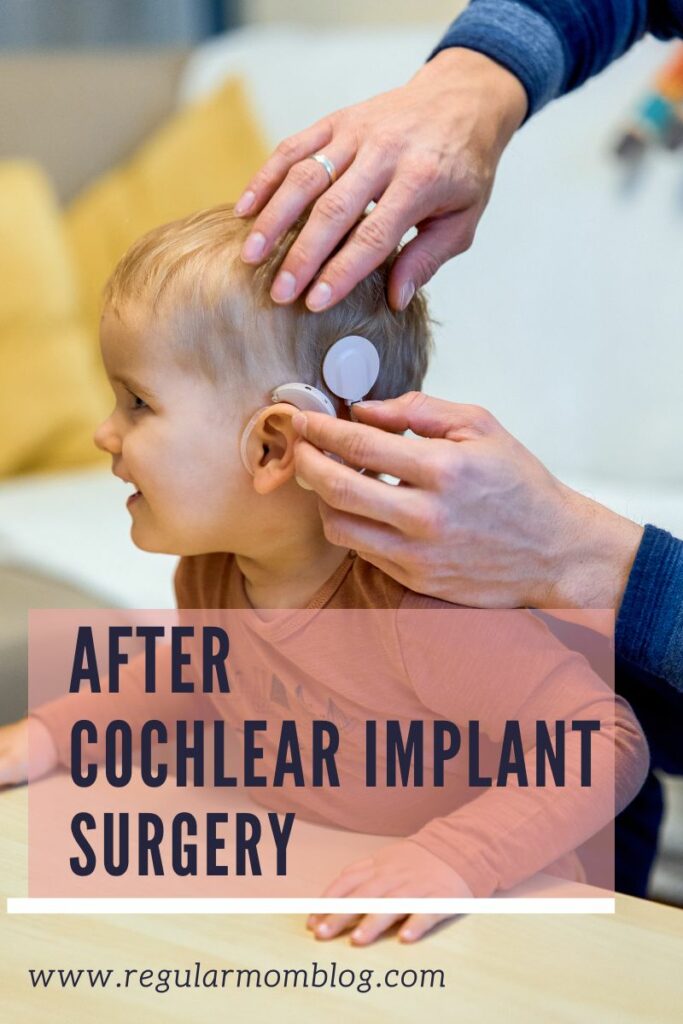
In this blog post, I’ll cover what to expect after cochlear implant surgery, with a focus on important details that will help you prepare.
After Cochlear Implant Surgery
Immediately following the cochlear implant surgery, you and your child may feel a whirlwind of emotions. Relief that the procedure is over, anxiety about the healing process, and perhaps even excitement for the new world of sound that awaits.
It’s important to remember that these feelings are entirely normal. I know that I was nervous on the day that both of my kids had their surgery for cochlear implants.
It is certainly difficult to give your child over to a surgeon when you can’t be in the room with them. However, the procedure is usually effective and safe, and you will have your child back to you soon.
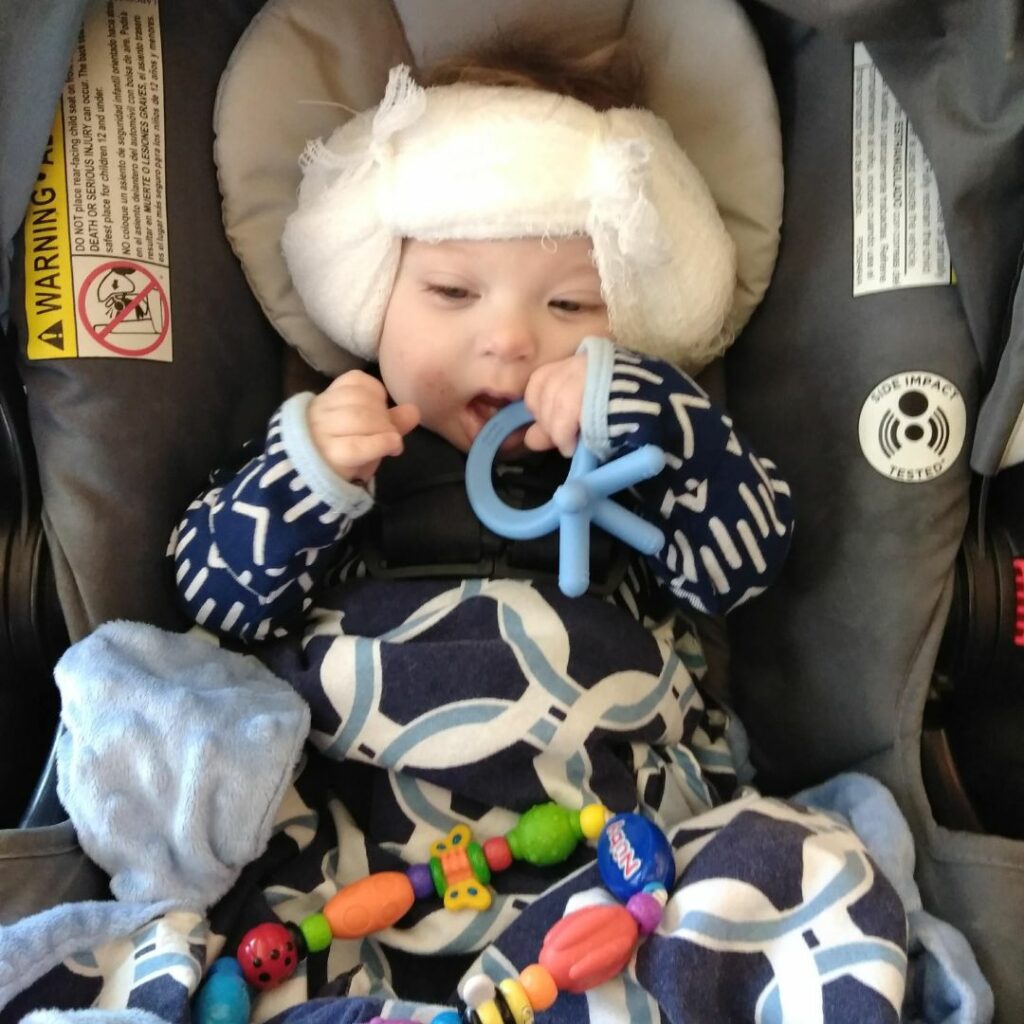
It’s important to remember that after the surgery is over, there is an initial recovery period after cochlear implant surgery. It typically involves some discomfort as the body heals.
Patience will be necessary as your child adjusts to the sensation of the implant. With time, your child will adapt to their new devices, and the benefits of the implant will begin to become obvious.
Recovering from Surgery
After the implant surgery, your child will require a period of rest and recovery. It’s completely normal for them to experience some pain or discomfort during this time.
But don’t worry, your child’s doctor will prescribe appropriate pain medication to help manage any discomfort they may be feeling.
In addition to this, the doctor will provide you with detailed instructions on how to properly care for the incision site, ensuring optimal healing.
It is crucial to keep the area clean and dry during the first week or two following the surgery, as this promotes a healthy healing environment. By following these guidelines and providing your child with the necessary care and support, you are ensuring the best possible outcome for their recovery.
How to Wash Hair After Cochlear Implant Surgery
When it comes to washing your child’s hair after cochlear implant surgery, special care must be taken to avoid water coming into contact with the surgical site.
Generally, it is recommended to wait at least a week before attempting any hair washing.
When you do begin, it is advisable to use a gentle, mild shampoo, avoiding any strong fragrances or chemicals which could irritate the healing area.

Make sure to use lukewarm water, not hot, as extremely high or low temperatures could negatively affect the wound.
The washing process should be done gently and slowly, and it’s essential to avoid directly scrubbing the incision.
When rinsing, lean your child’s head back to let the water flow away from the incision site. If it is difficult to keep the surgery site dry, consider using a waterproof dressing over the area during the wash.
Remember, it’s crucial to thoroughly dry the hair and scalp afterwards, using a soft towel and patting gently rather than rubbing. Following these steps can help maintain cleanliness and hygiene without compromising the healing process after cochlear implant surgery.
Activating the Implant
After the recovery period, once your child’s implanted device has been successfully placed, it will be time for activation.
This involves programming the device, which takes into account your child’s unique hearing needs and abilities.
The dedicated cochlear implant team will conduct a series of thorough tests and carefully make adjustments to ensure that the device functions optimally.
Throughout this testing phase, your child will gradually become accustomed to the incredible sensation of hearing through the implant device.
Rehabilitation and Follow-up Appointments
After the activation of the cochlear implant, the rehabilitation process commences. Your child will have the opportunity to work closely with a dedicated team of professionals specialized in speech and language therapy.
This team will provide extensive support to hel develop your child’s listening and speaking skills. Additionally, they will guide your child in learning how to effectively use and maintain the cochlear implant device.
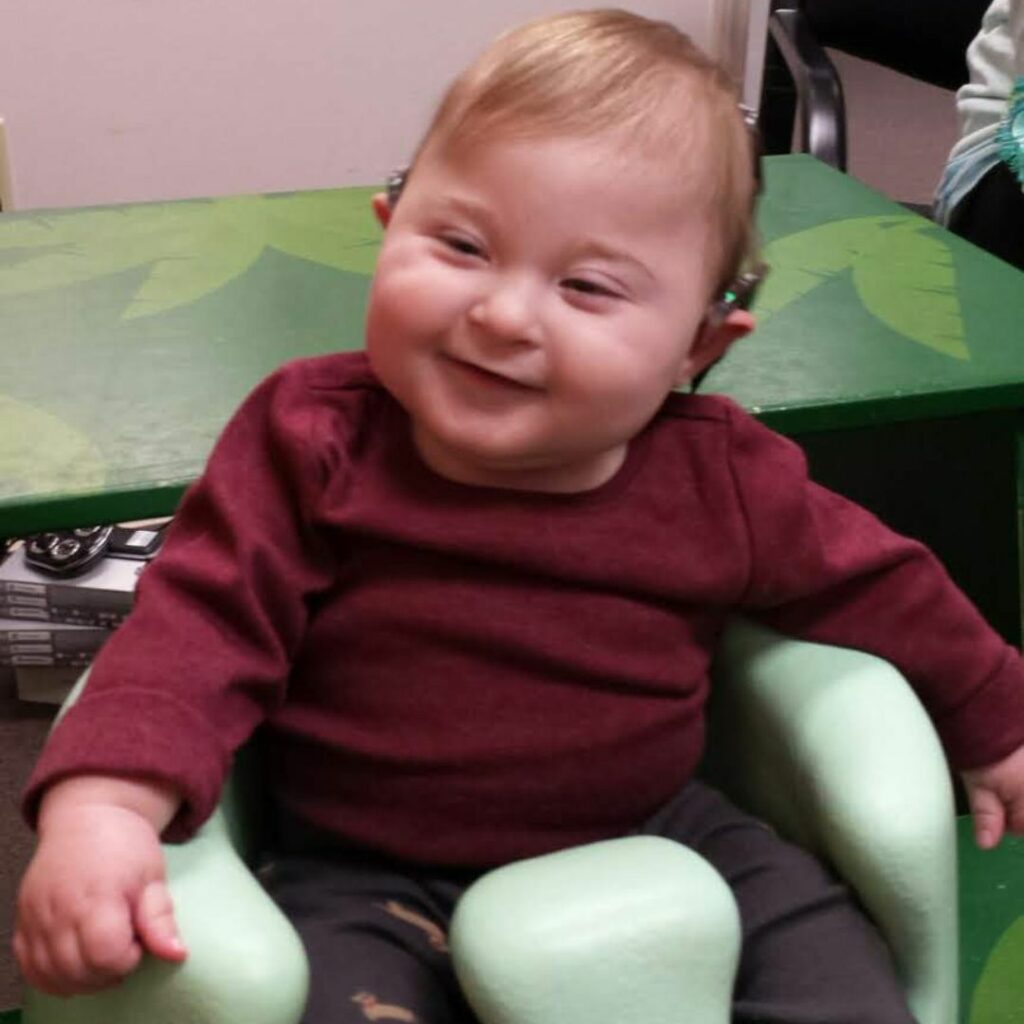
To ensure the optimal performance of the cochlear implant and to address any concerns that may arise, it is crucial to attend all scheduled follow-up appointments with your child’s cochlear implant team.
By doing so, you can rest assured that your child’s progress is being monitored and any necessary adjustments or interventions can be made promptly.
Adjusting to the Implant Device
It can take time for your child to adjust to their implant device, and it’s important to be patient and supportive during this process.
Some children may experience discomfort or difficulties with the device, such as feeling itchy, sweaty or uncomfortable wearing it for extended periods.
It can be helpful to encourage your child to wear the device as much as possible, keeping in mind that they might need a break from hearing sometimes.
Celebrating Success
While cochlear implant surgery can be a significant adjustment for both you and your child, there are many reasons to celebrate their progress!
With the help of the implant device and the dedicated professionals working with your child, they will develop their listening and communication skills progressively.
Celebrating their milestones, no matter how small, can make a significant impact on their self-confidence and well-being.
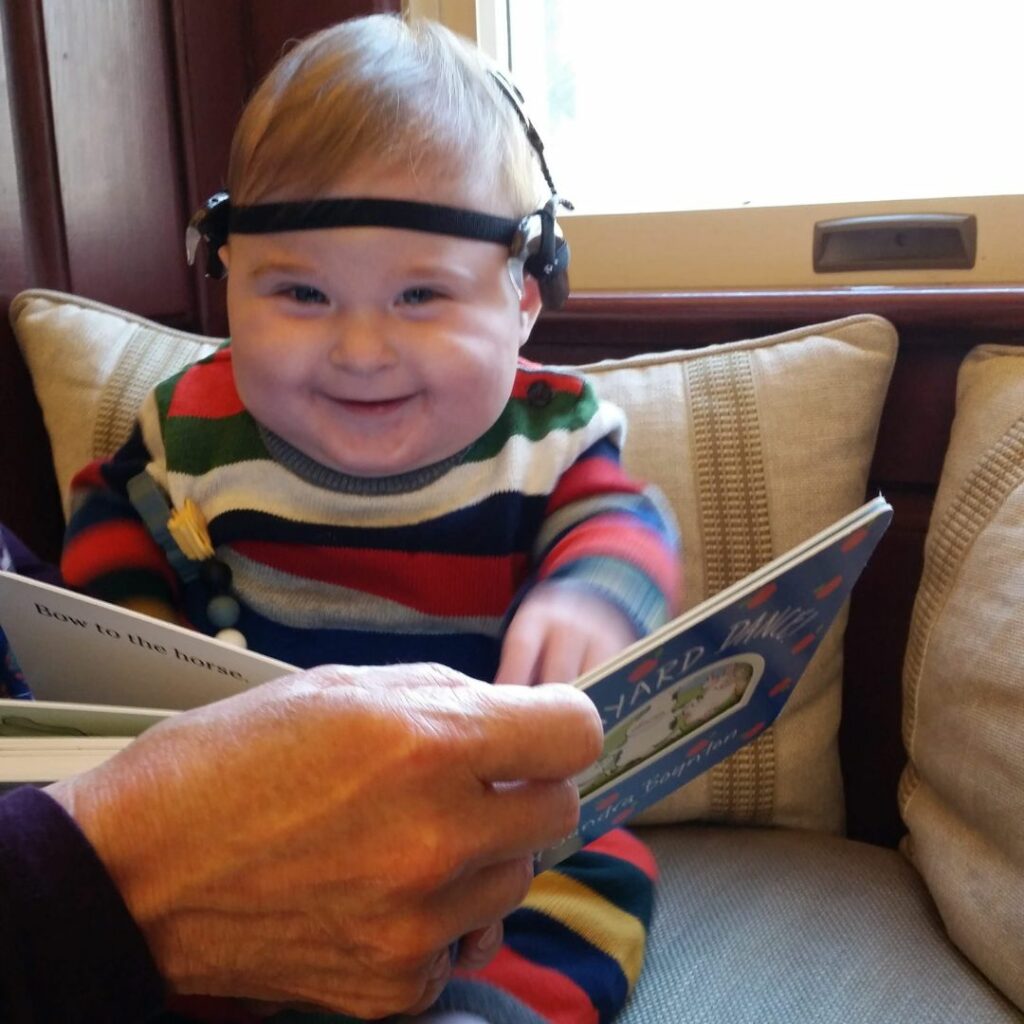
Cochlear implants can be a life-changing intervention for children with severe hearing loss.
As a parent, being knowledgeable of what to expect after cochlear implant surgery can help you prepare and support your child through this journey.
By understanding the recovery process, you can feel confident in advocating for your child’s needs.
Remember to be patient and supportive as your child adjusts to their new device, and celebrate their progress and achievements along the way!
More Cochlear Implant Resources
Cochlear Implant Surgery Steps
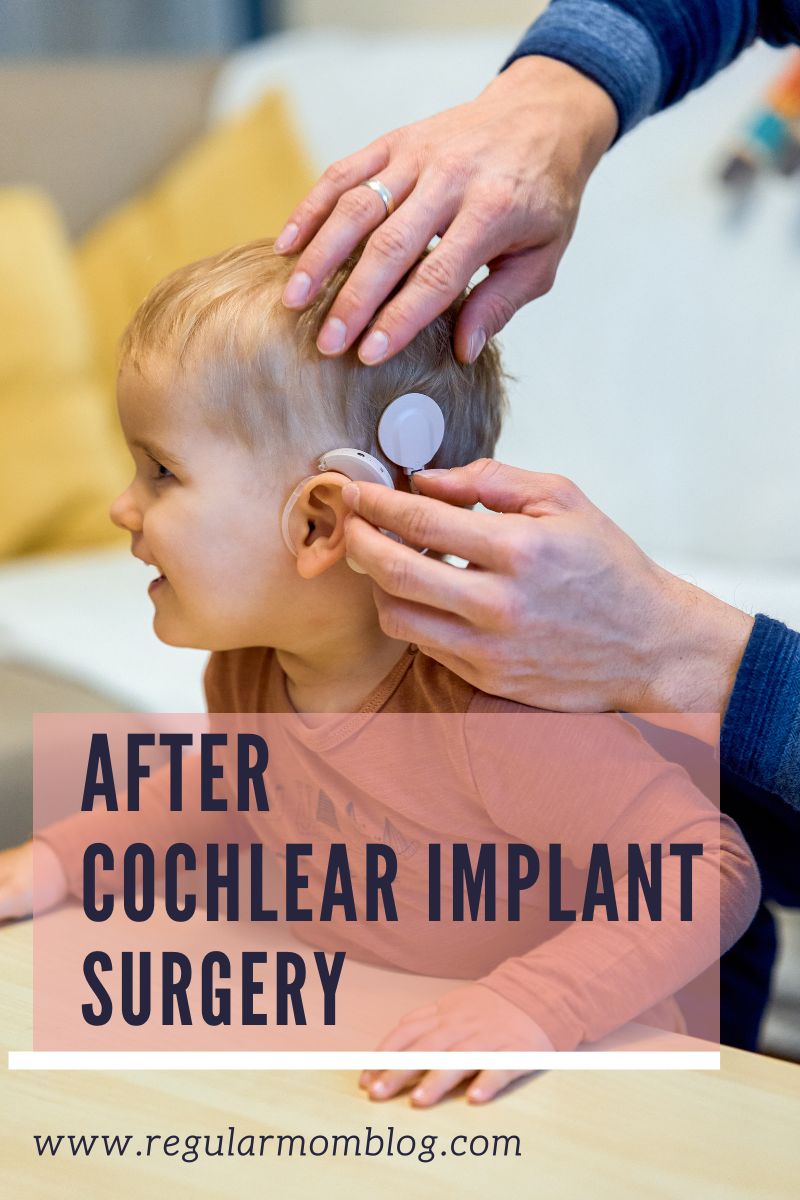
tell me more!
tell me more!
@alemerinobranding.co
DESIGNED BY: ALE MERINO BRANDING CO.
COACHING
Navigation
PODCAST
ABOUT
HOME
Legal
PRIVACY POLICY
TERMS & CONDITIONS
Let's connect
EMAIL hello@raisingdeafkids.com
BLOG